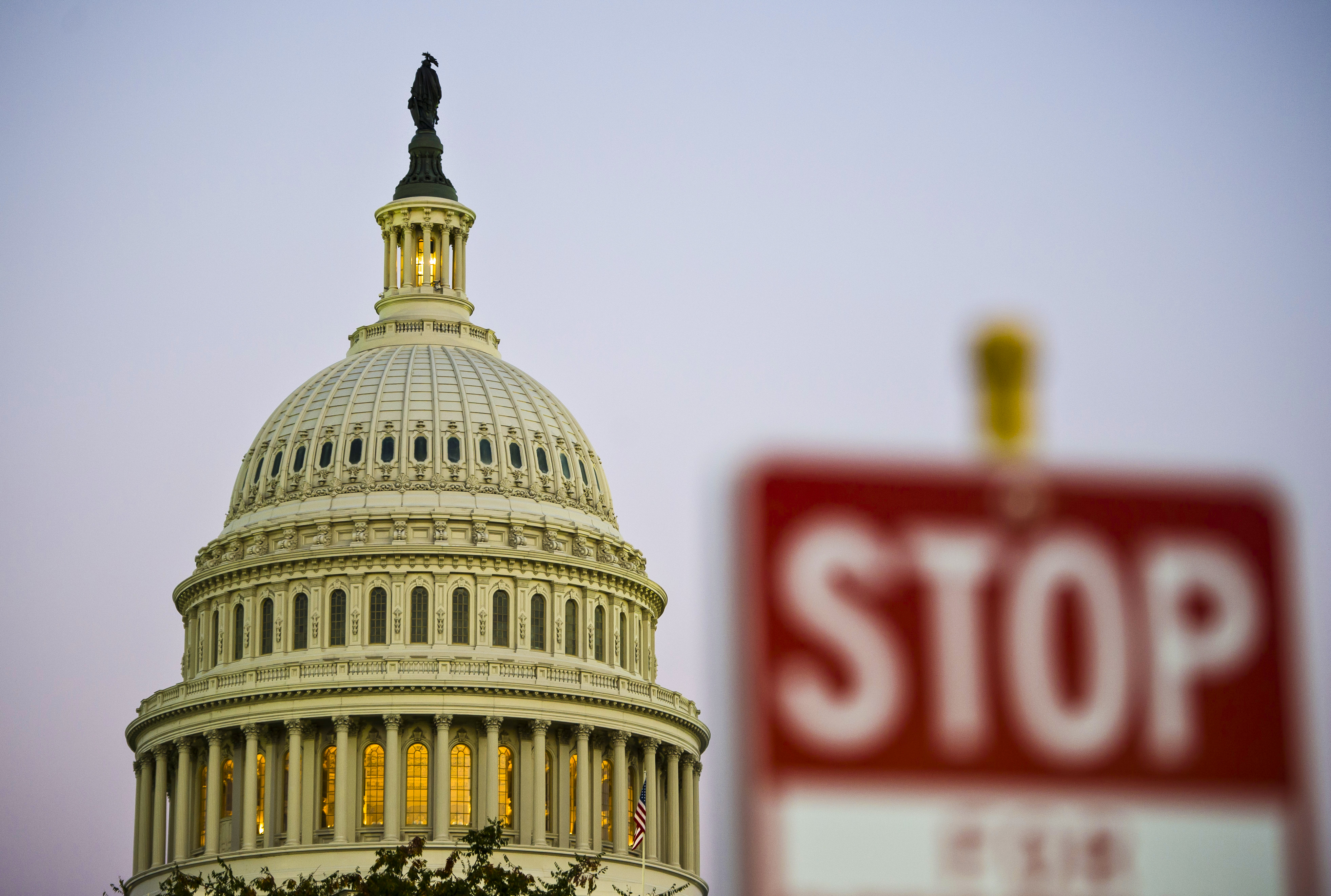Republicans aren't averting a government shutdown. They're just delaying it.
There's already another one looming


A free daily email with the biggest news stories of the day – and the best features from TheWeek.com
You are now subscribed
Your newsletter sign-up was successful
Congratulations, America: It looks like your government will not be shutting down this week after all.
Now that John Boehner has announced he will be resigning next month, he is supposedly free to do what he was actually perfectly free to do before, which is to allow a vote on a "clean" continuing resolution (CR) to fund the government, i.e. one that doesn't include a provision cutting off all Medicaid reimbursements to Planned Parenthood.
But before you get too relieved, there's something else you ought to know. The CR that's now working its way through Congress will only fund the government through December 11. In other words, two months from now we'll be doing it all again.
The Week
Escape your echo chamber. Get the facts behind the news, plus analysis from multiple perspectives.

Sign up for The Week's Free Newsletters
From our morning news briefing to a weekly Good News Newsletter, get the best of The Week delivered directly to your inbox.
From our morning news briefing to a weekly Good News Newsletter, get the best of The Week delivered directly to your inbox.
There's no way to know for sure whether we'll still be arguing about Planned Parenthood at that point, but if it isn't Planned Parenthood it'll be something else. There will be something conservative Republicans in Congress want to do, or more likely, stop, that will be so titanically important to them that they will refuse to fund the government unless they get their way. What that thing is doesn't really matter.
You'll recall that when they shut the government down in 2013, it was because the goal of repealing the Affordable Care Act was the most important thing ever, so vital that it necessitated the shutdown. Then later they threatened another shutdown, but this time it was President Obama's executive actions on immigration that were so monumentally awful that they had no choice but to move toward a shutdown. Today it's defunding Planned Parenthood that is so utterly essential that we must shut everything down if it doesn't occur. By December it could be something else entirely.
It's pretty obvious that what drives these crises isn't the substance of the issue everyone ends up taking about, it's the battle itself. That's what the tea partiers who create the crises are after. They want to stand up to Obama, to get their leadership to show some spine, to banish compromise, to fight, fight, fight! They'll fight about anything.
This was what John Boehner struggled with for nearly five years as speaker of the House: a significant portion of his caucus had zero interest in governing, which made them almost impossible to work with. They didn't come to Washington to write laws or solve problems, they came to fight, and if there's no fight going on then they have no purpose. Shutdowns don't bother them too much, because they think almost everything government does is bad anyway.
A free daily email with the biggest news stories of the day – and the best features from TheWeek.com
These members judge their own success not by the outcome of any battle, but by whether along the way they acquitted themselves with sufficient fierceness. The only opposition in their home districts they ever fear comes in the form of an attack from the right. When they go home they tell their constituents, "I stood up to Barack Obama!", and "I stood up to John Boehner!" That's an accomplishment as far as they're concerned, and it's greeted with cheers. It doesn't matter whether they won, or whether they actually achieved any of the conservative policy goals they claim to seek.
And now they've been emboldened. They see Boehner's resignation as a victory for them and a validation of their entire view of politics. The likely next speaker, Kevin McCarthy of California, has spent a good deal of time building relationships with the Tea Party representatives who despised Boehner, but they are going to be watching him very closely. At even the slightest hint that he wants to engage in any governing — of the kind that entails working with the other side and taking some of what you want even if you can't get it all — they will rise up against him.
That doesn't mean they will be able to depose him (they couldn't depose Boehner, after all, mostly because nobody else wanted the job badly enough to challenge him). But they will put every ounce of pressure on him they can, and, as of yet, we have no idea how McCarthy will respond.
So we'll have a situation very much like what he had up until Boehner's announcement: some irreconcilable policy disagreements, a Republican caucus itching for a fight with the president, and a speaker under pressure to go all the way to a shutdown. The only difference is that the new speaker will be particularly keen to demonstrate to his restive members that he's different from his predecessor.
And by the way, we're going to have to raise the debt ceiling in November or the United States of America will default on its obligations. This will give House Republicans yet another opportunity to threaten catastrophe if they don't get what they want. Should be a fun couple of months.
Paul Waldman is a senior writer with The American Prospect magazine and a blogger for The Washington Post. His writing has appeared in dozens of newspapers, magazines, and web sites, and he is the author or co-author of four books on media and politics.
